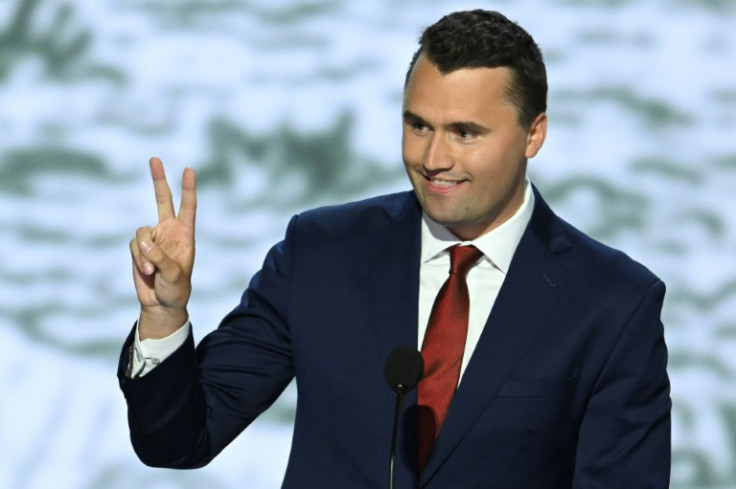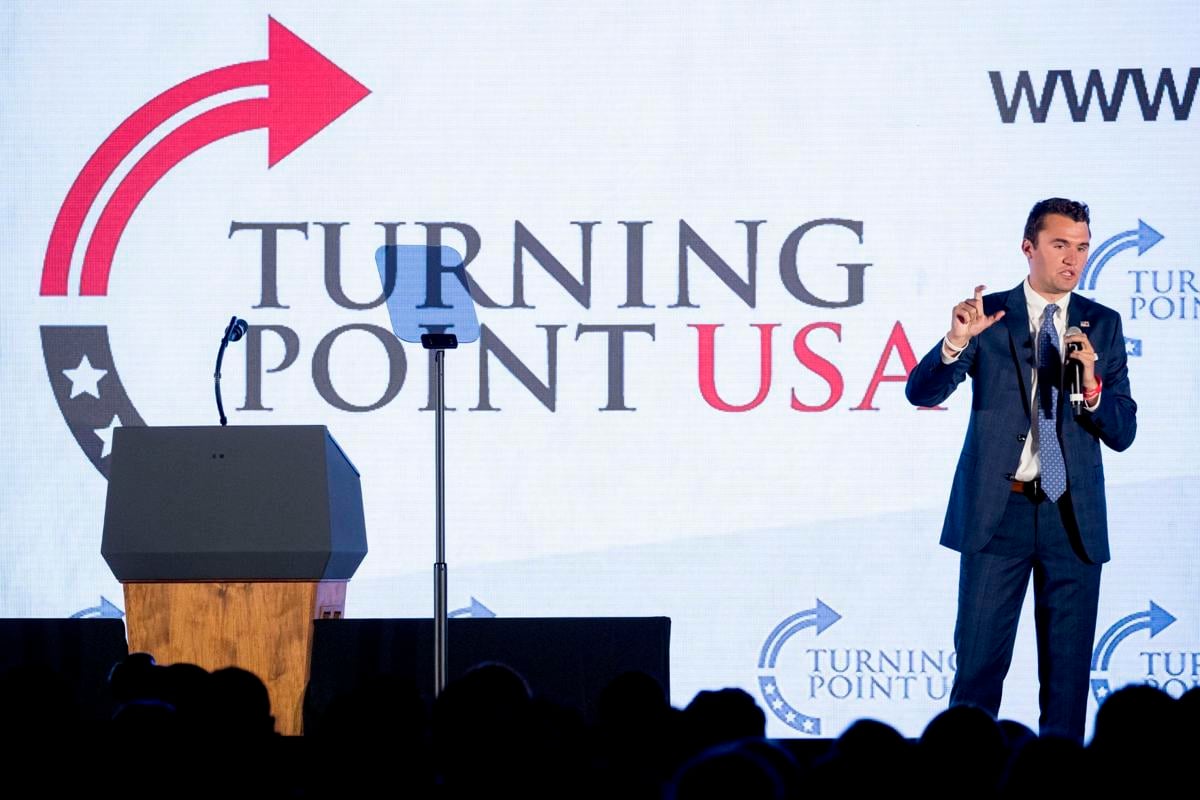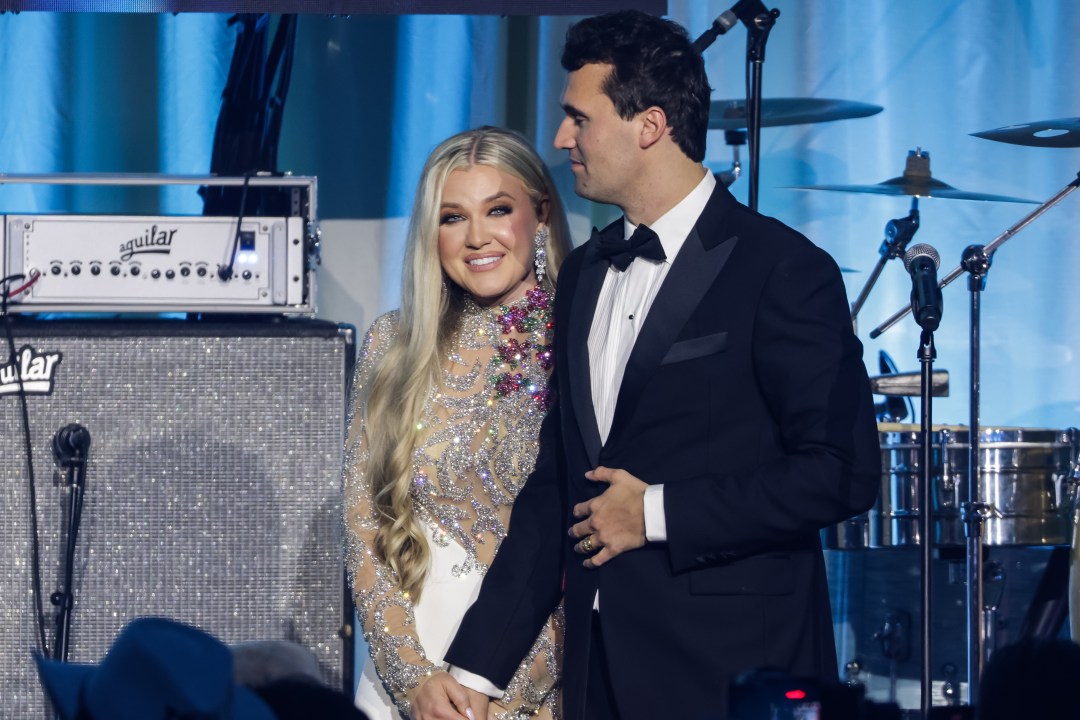Who Was Charlie Kirk? The Life and Legacy of a Conservative Firebrand

Early Life and Background
Charles James Kirk was born on October 14, 1993, in Arlington Heights, Illinois. He grew up in nearby Prospect Heights.
His mother worked as a mental health counselor and his father is an architect. During his youth, Kirk was active in civic and school activities. He was a Boy Scout (achieving Eagle Scout rank) and participated in high school sports.
He attended Wheeling High School. After high school, he enrolled at Harper College, a community college, but did not complete a degree. He dropped out to focus fully on political activism.

Founding of Turning Point USA (TPUSA) and Early Activism
Kirk became engaged in conservative politics since he was young. As a high school student, he supported Republican campaigns, for example volunteering for Mark Kirk’s Senate campaign (they are not related).
In 2012, at about age 18, he co-founded Turning Point USA, a student-movement-style organization to promote the conservative principles such as free markets, limited government, and individual liberty among students in high schools and colleges across the US.
Under Kirk's leadership, TPUSA grew substantially. It established a presence on many campuses, organized youth activism, speaking events, conferences, social media outreach, etc.
Media Presence, Writing, and Political Role
Kirk hosted The Charlie Kirk Show, a podcast and radio show aired nationally. This show started in October 2020 until his death. He also appeared often on conservative media, and uses social media platforms to disseminate his views.
He was also a writer; he authored and co-authored several books. Some of these books includes:
1.Time for a Turning Point: Setting a Course Toward Free Markets and Limited Government for Future Generations which he co-authored with Brent Hamachek and published in 2016.
2. Campus Battlefield: How Conservatives Can WIN the Battle on Campus and Why It Matters (2018)
3. The MAGA Doctrine: The Only Ideas That Will Win the Future (2020)
Some of his other books include The College Scam: How America's Universities Are Bankrupting and Brainwashing Away the Future of America’s Youth (2022) and Right Wing Revolution: How to Beat the Woke and Save the West (2024)
Kirk was a strong political influence and figure in the 2010s and 2020s American society. Often described as a prominent voice in the more populist, younger wing of the conservative movement in the U.S, Kirk kept strong associations with the “MAGA” movement (Make America Great Again).
His organization, TPUSA (and its associated arms) has been used to organize students, influence culture wars (education, what is taught in colleges, free speech), engage school boards, and shape policy debates.
Ideological Positioning and Key Issues
Charlie Kirk’s positions were strongly conservative, often leaning into the culturally and morally controversial debates of recent years. Some of his key stands:
Free markets, limited government: Core to his message is that government should be small, regulation limited, economic freedom high. TPUSA emphasizes fiscal conservatism.
Criticism of higher education: One recurrent theme in his writing and speeches is that colleges/universities in the U.S. have become ideologically biased (“woke”), expensive, and failing in providing value. Books like The College Scam explicitly challenge the role of universities in what he calls brainwashing youth.
Culture wars: He was active on issues like immigration, critical race theory, free speech on campuses, gender identity, LGBTQ issues, Christian identity, religious liberty. He frames many issues as part of a broader battle over ideas, morals, and national identity.
Christian nationalism: Over time, Kirk embraced religious dimensions more explicitly, including Christian faith as a part of his identity and political activism. He has also formed faith-based components of his movement.
Influence, Reach, and Organizational Scale
TPUSA under Kirk became one of the more visible conservative youth organizations in the U.S. It has staff across the country, presence on many high school and college campuses.
Charlie Kirk was active on social media platforms like X (formerly Twitter), and others, producing content that is widely shared. His audiences are substantial.
He also had frequent guest spots on television, radio and was greatly involved in speaking tours and campus debates.
He was associated with prominent figures in the conservative movement, including those tied to Trumpism. He is viewed by his supporters as an influencer, by critics as a provocateur.
Recent Events & Death
Charlie Kirk died from a gunshot during a speaking event at Utah Valley University on September 10, 2025, at the age of 31. Authorities have described the shooting as a political assassination, although investigations are ongoing at the time of reporting.
His death prompted widespread discussion about political violence, safety for public figures, and the state of political discourse in the U.S.

Charlie Kirk married Erika Kirk(née Erika Frantzve) in 2021. They had two children, a daughter born in 2022 and a son born in 2024.
Kirk was an evangelical Christian and incorporated religion into his political identity more overtly over time. He also worked to mobilize religious communities through components of TPUSA.
Lessons from Charlie Kirk’s Life and Work
Charlie Kirk’s life and work reflect broader trends in U.S. politics in the early 21st century. Here are some implications and what one can get from his story:

1.Youth engagement in conservative activism: Kirk showed that political activism among young people can be organized on a large scale, especially using social media, campus networks, and youth-oriented events. He tapped into young conservatives who felt alienated by traditional party structures or mainstream media portrayal of culture issues.
2. The power of identity and culture in politics: The debates Kirk was involved in are not just about policy, they are deeply tied to identity, cultural values, religious belief, tradition vs change. Kirk believed that any society can thrive using the rules and values gotten from the Bible.
These views put him at loggerheads with his oppositions and subsequent cultural war.
3.Polarization and echo chambers: Kirk’s communications often reinforced divisions. For supporters, he was a truth-teller fighting against perceived liberal dominance.
For critics, he was a just figure fomenting culture war, misrepresenting facts, or oversimplifying complex issues. His style, however, reflects how politics in many countries is increasingly not just about governance but about narratives, belief systems, and media influence.
4. Media environment: His rise underscores how podcasting, social media, and non-traditional media platforms enable individuals less tied to institutions to attain large influence. He exemplified how building a brand, using viral content, and engaging conflict (debates, controversies) can amplify reach.
5. Questions of accountability: With influence come scrutiny. Issues like financial transparency, claims made in public speeches or books, and how rhetoric impacts public discourse are part of the legacy as much as his achievements.
Why He Was Controversial
Charlie Kirk emerged at a moment when youth conservatism, dissatisfaction with mainstream media, concerns about cultural change (gender, race, free speech) were becoming more central. Kirk captured, shaped, amplified many of these currents.
By creating TPUSA and related organizations, he gave structure to youthful conservative energy, allowing it to scale, organize, fundraise, produce content, hold live events, and have sustained impact, not just episodic activism.
To many of his supporters, Kirk represented a pushback against what they saw as ideological conformity in universities, liberal dominance in cultural institutions, perceived attacks on religious liberty.
To critics, he stood for the excesses of populist conservative rhetoric which includes the fear of change, demonization of some social movements, and overreach.
Through his activism, speeches, and media reach, he played a role in shaping voter attitudes (especially among young conservatives), influencing the conservative platform, and perhaps indirectly affecting political campaigns.
Conclusion
Charlie Kirk was a force in modern American conservative politics. Young, media savvy, ideologically clear, willing to pick fights, and unapologetic in his culture-war framing, he became a significantly polarizing figure.
His career offers insights into how movements can form outside traditional political channels, how identity and culture can be central in political work, and how media (including social media, podcasts, live events) reshape power.
His death at a young age, and in such dramatic circumstances, elevates the questions about political discourse, safety, accountability, and legacy.
Whether one agrees with him or not, his rise and influence are a window into the dynamics shaping U.S. politics in this era.
You may also like...
Be Honest: Are You Actually Funny or Just Loud? Find Your Humour Type

Are you actually funny or just loud? Discover your humour type—from sarcastic to accidental comedian—and learn how your ...
Ndidi's Besiktas Revelation: Why He Chose Turkey Over Man Utd Dreams

Super Eagles midfielder Wilfred Ndidi explained his decision to join Besiktas, citing the club's appealing project, stro...
Tom Hardy Returns! Venom Roars Back to the Big Screen in New Movie!

Two years after its last cinematic outing, Venom is set to return in an animated feature film from Sony Pictures Animati...
Marvel Shakes Up Spider-Verse with Nicolas Cage's Groundbreaking New Series!

Nicolas Cage is set to star as Ben Reilly in the upcoming live-action 'Spider-Noir' series on Prime Video, moving beyond...
Bad Bunny's 'DtMF' Dominates Hot 100 with Chart-Topping Power!

A recent 'Ask Billboard' mailbag delves into Hot 100 chart specifics, featuring Bad Bunny's "DtMF" and Ella Langley's "C...
Shakira Stuns Mexico City with Massive Free Concert Announcement!

Shakira is set to conclude her historic Mexican tour trek with a free concert at Mexico City's iconic Zócalo on March 1,...
Glen Powell Reveals His Unexpected Favorite Christopher Nolan Film

A24's dark comedy "How to Make a Killing" is hitting theaters, starring Glen Powell, Topher Grace, and Jessica Henwick. ...
Wizkid & Pharrell Set New Male Style Standard in Leather and Satin Showdown

Wizkid and Pharrell Williams have sparked widespread speculation with a new, cryptic Instagram post. While the possibili...
